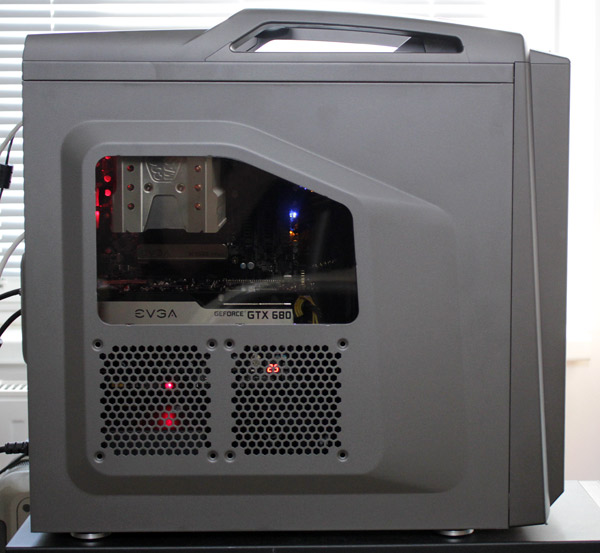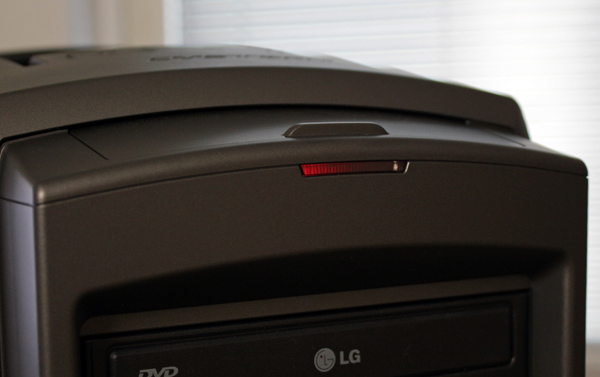Index
The Scout 2 is 2cm taller, 1.1cm wider and 2.85cm longer than its predecessor. The dimensions are exactly (W x H x D) 230 x 513 x 517.5mm / 9.1 x 20.2 x 20.5 inches. The Scout 2 will take any Micro-ATX or ATX motherboard.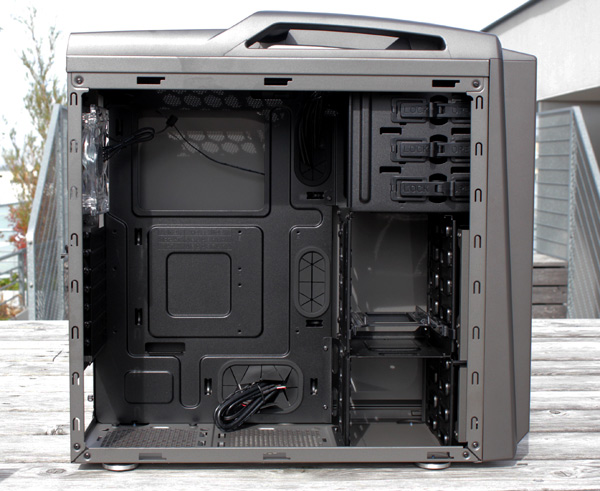
The three 5.25“ slots come with simple but sufficient locking mechanisms. The pins are long enough to keep 5.25’’ devices in their place.
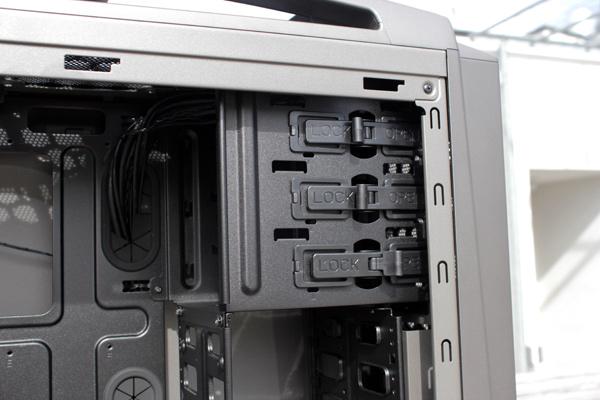
The two HDD cages combined hold up to seven 3.5’’, or six if you choose to use one 2.5’’ HDD/SSD.
The Scout 2 can take any graphics card, courtesy of a removable HDD cage. The limitation is 287mm / 11.3 inch (with HDD cage); 399mm / 15.7 inch (without HDD cage). The original Scout didn’t support graphics longer than 270mm.
The Scout 2 doesn’t have the 5.25’’-to- 3.5’’ adapter that came with the original Scout. Once you remove the top HDD cage, you’re left with three 3.5’’ slots. If the adapter was there, we’d get an additional 3.5’’ slot. The top HDD cage can also house a 120mm fan, on the side facing the graphics card.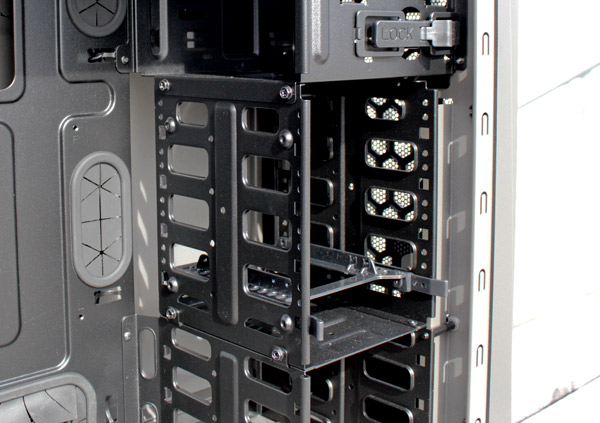
The rails Cooler Master chose are well made, but made for 3.5’’ only. We’d rather see those from the Trooper, since they can be used for both 3,5’’ and 2.5’’ formats. The Scout 2 comes with a single 3.5-to-2.5’’ carrier, that takes two 2.5’’ drives.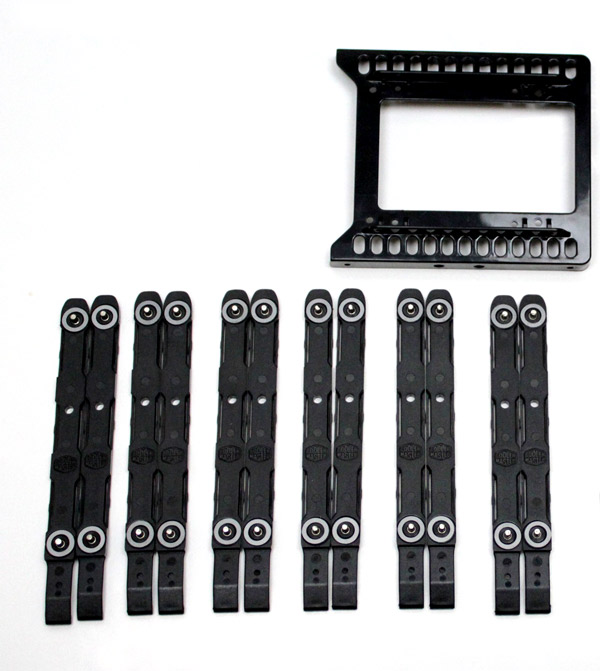
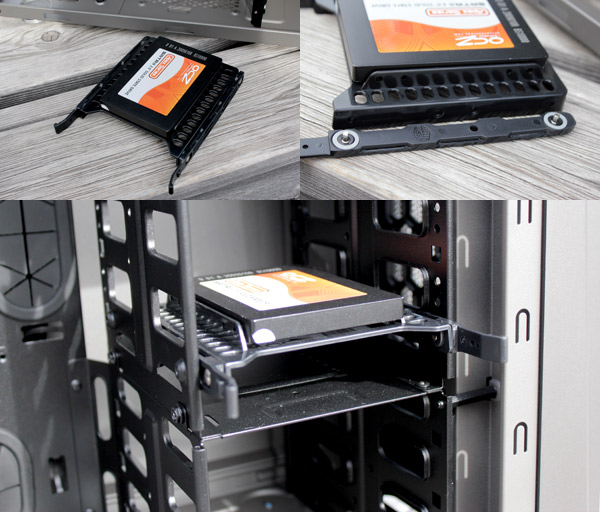
The Scout 2 supports CPU coolers up to 162mm tall. The Hyper 612S we chose for our testing is 163mm tall and fit inside, but barely. In general, this should be enough, because there are plenty of quality coolers below 162mm.
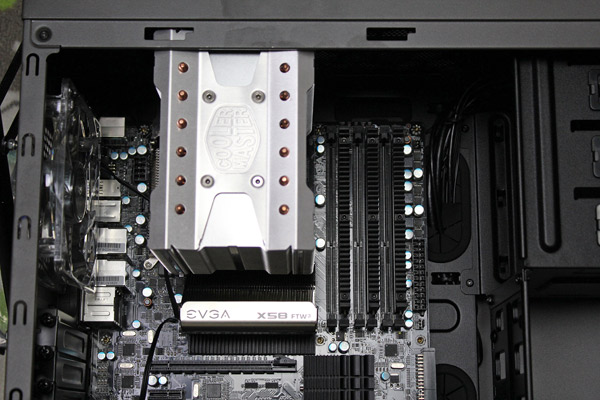
Users should mind the width of the CPU cooler as well. Please ensure that the width of your CPU cooler does NOT exceed the upper edge of your motherboard, or you might experience interference with the top fan on the Scout 2.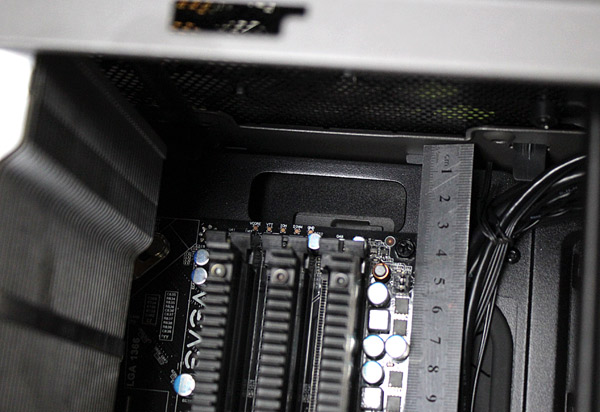
The picture below clearly shows that Hyper 612S cooling didn’t like them top panel fans.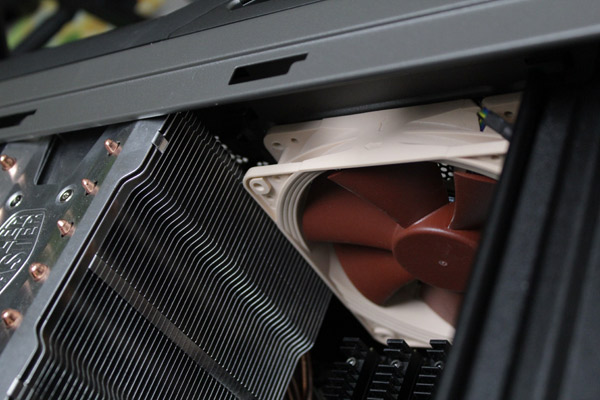
The Scout 2 supports up to nine fans, but comes with a single, rear panel fan.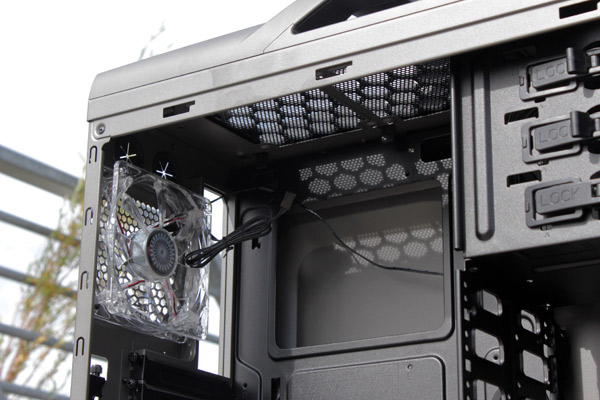
CM Storm based its decision on the fact that gamers like to build their own rigs and use their own fans, rather than rely on factory stocked ones. This is quite understandable and is something CM Storm could think about next – quality gaming fans for its cases.
The LED lights in the fan are on a separate power and can be controlled independently.
PSU will sit on rubber feet that are designed to stay in place. Foam based feet tend to fall out quickly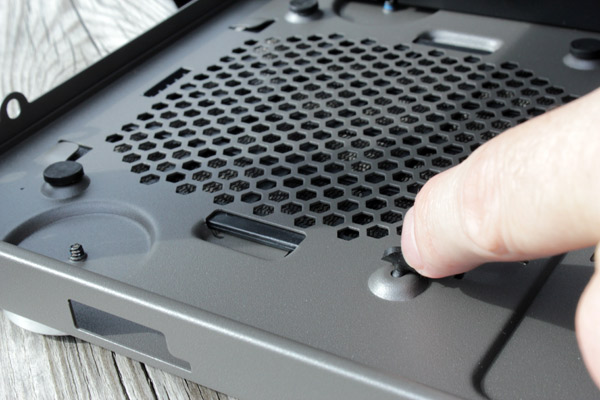
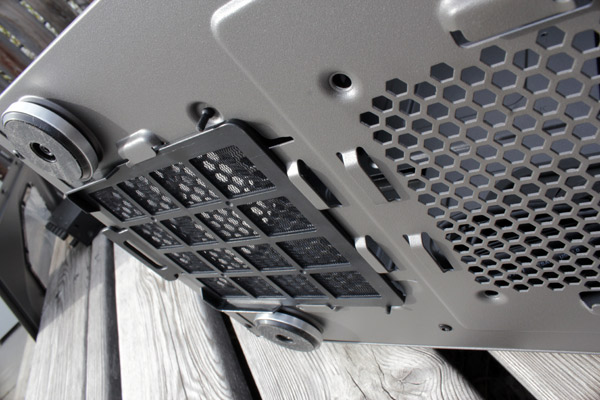
The Scout 2 will take pretty much any PSU, where longer than 155mm would require taking off the bottom panel fan. Still, mounting the fan here won’t be simple, what with all the cabling.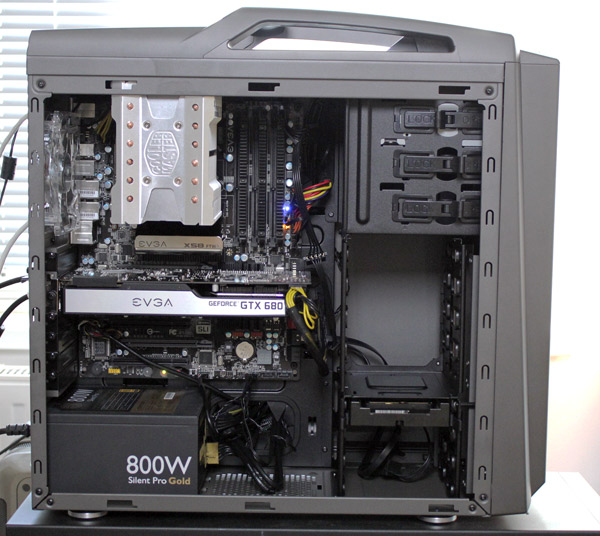
Cable management was thought out well and the holes are not blocked by motherboards. There’s plenty of room for cables behind the motherboard tray. Side panel design introduced even more room, so it was a convenient place to hide excess cabling.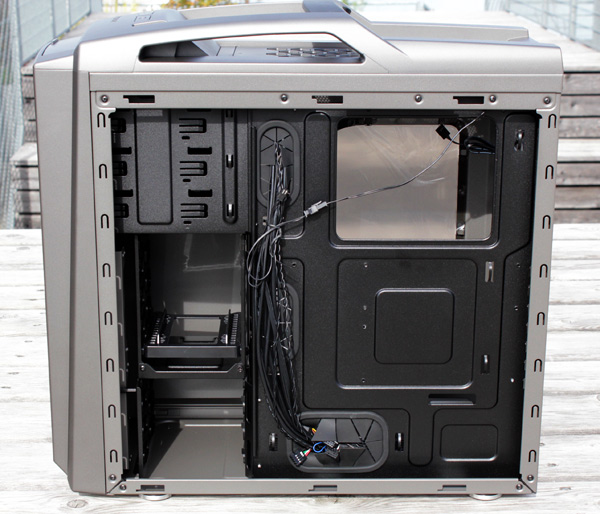
On top of the motherboard tray are two holes – CPU power and fan cabling.
Locking and loading the Scout 2 was easy. Knowing our test board, EVGA’s X58 FTW 3, we made sure to mount the CPU cooler before throwing the board inside. We thought we probably won’t be able to put the cooler in later, although to be fair, EVGA X58 FTW 3’s CPU socket is almost on the edge of the board. All in all, we had fun setting up the Scout 2.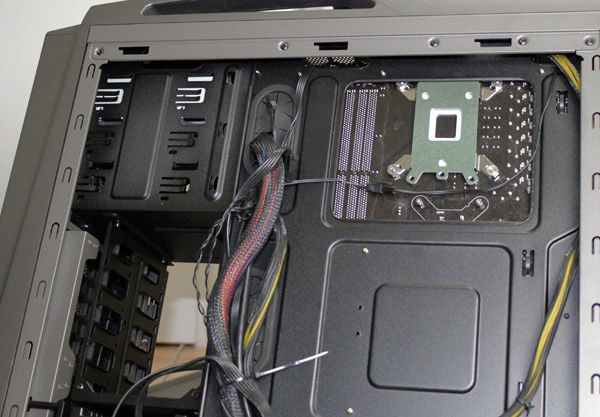
Side panels are easy to work and the side panel window gives a nice view of the Scout 2 innards.
